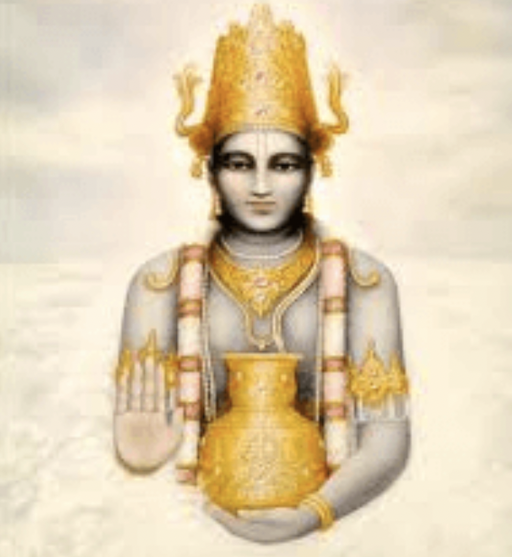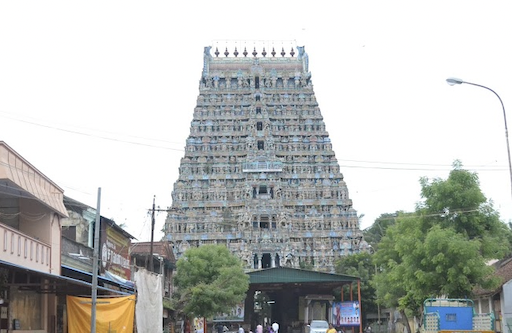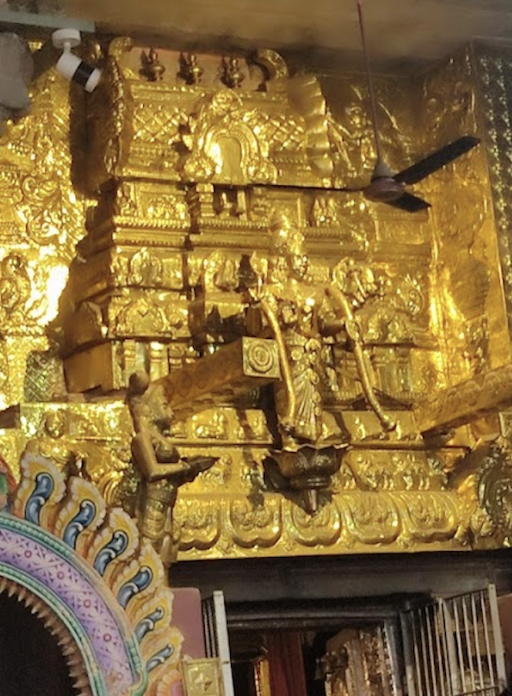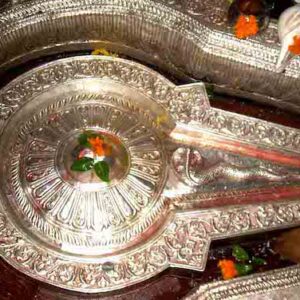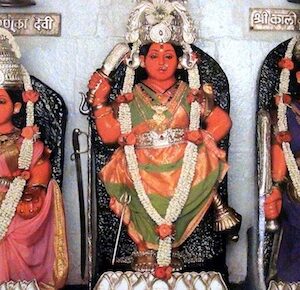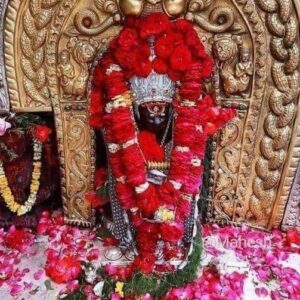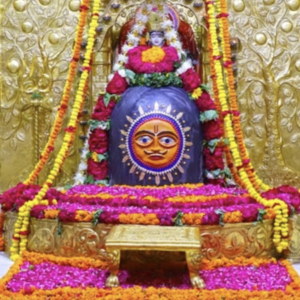This is a Jeevasamadhi of Dhanvantari Siddhar, one of revered 18 Siddhars from Tamil Nadu.
There is a place to sit and meditate. You can go into meditative states here effortlessly.
How to get there
It is located inside Sree Vaithyanathaswamy Temple, 14.5 kms North East of Mayiladuthurai.
Map: https://goo.gl/maps/fZbCLFUKNi3GZHkYA
About Dhanvantari Siddhar
According to Purana’s Siddhar Dhanvantari is an avatar of Vishnu in Hinduism, who appeared at the churning of the ocean. Bhagavata Purana states that Dhanvantari emerged from the Ocean of Milk and appeared with the pot of amrita (elixir for immortality) during the story of the Samudra (or) Sagara Mathana whilst the ocean was being churned by the Devas and Asuras, using the Mandara mountain and the serpent Vasuki. He also appears in the Vedas and Puranas as the physician of the gods (devas), and the god of Ayurveda.
But, Siddhar Agathiyar in his acclaimed work of Agathiyar 12000 says that “Siddhar dhanvantari belongs to the ancestry of Lord MahaVishnu and was born to a family of musical tradition. Also, he learned Siddha Medicine System top to bottom seeking knowledge from 18 Siddha’s”. In the glorified history of Tamil Siddha Medicine System, Siddhar dhanvantari occupies a distinctive position as an exponent of Ayurveda System of medicine, which is an arm of Siddha Medicine System. He perfected many herbal based cures and natural remedies and was credited with the discovery of the antiseptic properties of turmeric and the preservative properties of salt which he incorporated in his cures.
Being a very skilled surgeon according to the standards of his time, he is widely believed to be the pioneer of modern medical practices like plastic surgery Thus he is considered “Father of Ayurveda”. His birthday is celebrated by the practitioners of Ayurveda every year, on Dhanteras, two days before Diwali.
He had compiled his works on universal salt- Muppu, Amuri and Jayaneer. He has also performed black magic and miracles, which he has cited in his works with full descriptions. According to traditions, he taught surgery methods and procedures to Susrutha, the Father of Ayurvedic Surgery. His disciples are Susruta, Pauskalavata, Aurabha, Vaitarana, and others. His Jeeva samadhi is in Vaitheeswaran Koil in Chidambaram, where there is a small temple dedicated to him. There are a few dedicated temples to Dhanvantari in South India especially in Kerala and Tamil Nadu, where Ayurveda is highly practiced and patronized. The Dhanvatari temple in Thottuva in Kerala is a particularly famous temple, where Lord Dhanvatari’s idol is almost six feet tall and facing east. On the right hand the lord holds Amrith and with the left hand, the lord holds Atta, Shanku, and Chakra. The ‘Ekadasi’day celebration, which falls on the same day as the ‘Guruvayur Ekadasi’ is of special significance.
His works are mostly in Sanskrit so, segregated as Ayurvedic medicine system by the next generation people. And yet, like other Padinen Siddhas, he also compiled many mystical songs in Tamil language too.
Read More
http://www.anaadifoundation.org/blog/siddhars/dhanvantari-siddhar/
